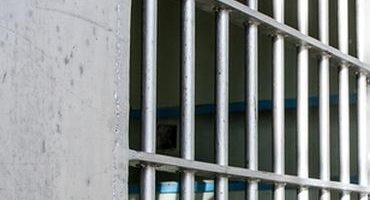The Code of Criminal Procedure provides for the possibility of applying to the suspect, and at a later stage of the accused’s proceedings, eight preventive measures, but each time their application must be justified by the circumstances specified in the Code of Criminal Procedure. In the event of applying preventive measures in preparatory proceedings – the prosecutor, and in court proceedings – the court issues a decision indicating the preventive measure that will be applied to the suspect or accused person. However, the decision on the application of pre-trial detention in the first instance may only be issued by a district court. When dividing them, it can be indicated that there are preventive measures of a freedom character (bail, police supervision, prohibition to leave the country, etc.), as well as the only isolation preventive measure. Regarding pre-trial detention, it should be noted that, apart from meeting the basic condition (the so-called general condition) for the application of a preventive measure specified in Art. 249 § 1 of the CCP one of the specific conditions specified in Art. 258 § 1-3 of the CCP.
General premise for applying pre-trial detention
When discussing the issue of applying pre-trial detention, first of all, one should focus on the general premise contained in Art. 249 § 1 of the CCP Pursuant to the provision cited, preventive measures can only be used:
- If there is a need to secure the proper course of the proceedings;
- Exceptionally, in order to prevent the accused from committing a serious new crime;
- When the evidence collected in the course of the proceedings, but before the application of a preventive measure, must indicate a high probability of committing the act of the accused.
Bearing in mind the above, the proper application of preventive measures will take place when there is a real probability that the suspect will obstruct the proceedings, e.g. By blurring the evidence, contacting co-suspects or threatening the aggrieved party. It is the circumstances established in the course of criminal proceedings that must prove the existence of such a concern. Moreover, they must concern the perpetrator and not the other suspects. This means that it would be unreasonable to apply a preventive measure to one of the suspects only because another suspect attempts to contact him. At this point, it is also worth quoting a fragment of the decision of the Court of Appeal in Katowice, according to which “the purpose of preventive measures is to secure the proper course of the proceedings and they cannot transform into the emancipation of punishment” (post. SA in Katowice, October 22, 2008, II AKz 793 / 08, LEX No. 477777).
The last of the above-mentioned reasons indicates when the preventive measures can be taken. According to Art. 249 § 1 sentence 2 of the Code of Criminal Procedure preventive measures can only be used when the collected evidence shows a high probability that the suspect has committed a crime. This means that preventive measures cannot be imposed in misdemeanor cases. High probability must refer to the offense the suspect is charged with committing, and not to the suspicion of any other crime, and it is necessary for the suspect to fulfill all the features of the offense. Considering the above, it will not be justified to apply a preventive measure to a suspect for whom there is insufficient evidence that that person has committed the alleged offense. In this context, it should be clarified that the gathering of evidence in an incidental procedure (i.e. Concerning the application of preventive measures) may start even before the alleged perpetrator is apprehended. This evidence is mainly related to the nature of the prohibited act the suspect is accused of having committed. Most often they are tools used to commit a prohibited act, as well as reports and testimonies of witnesses and co-suspects, if any. It is important that in incidental proceedings the evidence in the form of accounts of witnesses and co-suspects is not verified in detail in terms of its truthfulness. This type of court proceeding should be assessed critically, as it may lead to various types of slander, in particular when a person cooperating with other persons in committing a crime discloses to law enforcement authorities information about persons involved in committing the crime and relevant circumstances of its commission, and thus the court may apply extraordinary mitigation of punishment, or conditionally suspend its execution in relation to this person (the so-called small crown witness).
Moreover, in accordance with the procedural guarantee of the accused resulting from the right to defense, only findings made on the basis of open evidence for the accused and his defense lawyer, as well as evidence from witnesses with a well-founded fear of danger may constitute the basis for the application or extension of pre-trial detention. For life, health or freedom. The term “justified fear” should be understood as a fear that a rational and logical person would have taken, and the circumstances of its occurrence must result from evidence gathered in criminal proceedings. The fear for the life, health or freedom of the witness or the person closest to him is not enough. The above guarantee results from the right of the suspect and his defense lawyer specified in Art. 156 § 5a of the CCP The cited provision is to provide the suspect and the defense lawyer with the evidence supporting – in the prosecutor’s opinion – for the application or extension of pre-trial detention. The discussed procedural guarantee will be provided only in a situation where the suspect and his defense counsel will be able to read the case files in the part containing the content of the evidence attached to the application for the application or extension of pre-trial detention, because only then will they be able to comprehensively address the above-mentioned the prosecutor’s request.
The above premises show that the legislator, when designing the Code of Criminal Procedure of 1997, took into account the uniqueness of their application. The point was not that the suspect should feel the negative effects of his behavior already at the stage of preparatory proceedings (and sometimes immediately after arrest), in particular taking into account the principle of the presumption of innocence under Art. 5 § 1 of the CCP Their application is intended solely to counteract the negative consequences of the criminal trial that could be caused by the suspect’s in appropriate (unlawful) behavior.
Special conditions for the application of pre-trial detention
The specific conditions for the application of pre-trial detention and other preventive measures are set out in Art. 258 of the Code of Criminal Procedure It should be noted that in order to apply preventive measures, it is sufficient to meet the general condition, as well as one of the specific conditions. At the same time, none of the negative premises specified in Art. 259 of the Code of Criminal Procedure
According to Art. 258 of the Code of Criminal Procedure the need for pre-trial detention or another measure arises when there is a well-founded fear of the suspect’s escape or hiding, especially when his identity cannot be established or he has no permanent residence in the country where the suspect is charged with the crime. These circumstances may indicate the suspect’s fear of avoiding criminal liability, and the same as with regard to the general premise of the above-mentioned fears must be well-founded. This means that the concern must be real, and therefore results from the evidence gathered in the proceedings. Only these circumstances, occurring in a specific case, can be the basis for considering that the above-mentioned a special premise.
In art. 258 § 1 point 2 of the CCP the legislator concluded the second of the special conditions, the fulfillment of which enables the application of pre-trial detention. It is justified by the fear that the suspect will persuade the aggrieved party, witnesses or co-accused to give false testimony or obstruct the preparatory proceedings in any other unlawful way. Also in the discussed case, the legislator used the phrase of justified fear, which should be understood as a real fear resulting from the evidence gathered in the case. Concerning the above with the practice of courts, it should be noted that courts often adjudicate on the application of pre-trial detention in connection with a prohibited act the suspect is accused of having committed. This is especially visible in the case of suspicion of committing the crime of participation in an organized criminal group under Art. 258 § 1 of the CC In this case, the mechanical application of an isolation preventive measure must be considered contrary to the ratio legis of the Code of Criminal Procedure. In order to apply each preventive measure, law enforcement authorities and courts should first consider the purpose of its application, adapt it to a specific case, and then the appropriateness of applying the selected preventive measure to a specific criminal procedure, taking into account the factual and legal status of the case. Citing only participate in an organized criminal group should be considered erroneous, resulting in negative consequences for the suspect (accused) and the prison system.
The special basis for the application of preventive measures, resulting from Art. 258 § 3 of the CCP has an exceptional character, which was emphasized by the legislator in the wording of the provision. The application of a preventive measure on this basis will be of a preventive nature, which is a deviation from the procedural nature of preventive measures. In order for the discussed premise to be applied, there must be a well-founded fear that the suspect will commit a crime against life, health or public safety, especially when he previously threatened to commit such an offense. It can be noted that in this respect the discussed premise is very similar to the general premise in Art. 249 § 1 of the CCP with one reservation. It is necessary for its application that the suspect is charged with committing a crime or willful misdemeanor. At this point, it should be noted that a crime is a crime punishable by imprisonment for 3 years or a more severe penalty.
Threat of severe punishment for the alleged offense
The premise specified in Art. 258 § 2 of the CCP deserves a separate discussion due to its importance in the practice of the criminal trial. Applying it as an independent special condition raises many doubts. In particular, the principle of the presumption of innocence should be pointed out, which states that the accused is presumed innocent until proven guilty and confirmed by a final judgment. Moreover, pursuant to Art. 313 § 1 of the CCP an allegation is made when there is sufficient suspicion that a specific person has committed a prohibited act. Sufficient means sufficient, satisfactory, so the evidence collected in the proceedings does not have to unequivocally indicate that the suspect has committed the alleged act, but only creates a probability of committing the alleged criminal act. It also often happens that law enforcement authorities initially charge the suspect with committing a prohibited act whose statutory threat is stricter than the act ultimately indicated in the indictment. In addition, there is also a possibility of changing the legal classification of an act, which may also take place during the court proceedings, as provided for in Art 399 § 1 of the CCP, however, it should be emphasized that the court, by making such a change, cannot go beyond the limits of the accusation. It is about the boundaries drawn by the prosecutor, which are set by the lodging of a complaint (bill of indictment). Additionally, in accordance with the principle of complaints under Art. 14 § 1 of the CCP the court may adjudicate only on the act alleged in the indictment, and the act should be understood as the actual events that took place. Some jurisprudence indicates that the fulfillment of the condition in the form of a possible severe penalty for the alleged offense, while meeting the conditions of Art. 249 § 1 and article. 257 § 1 of the Code of Criminal Procedure, as well as the absence of negative premises specified in Art. 259 § 1 and 2 of the CCP constitutes an independent premise for the application of pre-trial detention (see post of the Supreme Court of November 21, 2012, V KK 220/12, LEX No. 1228650; post of SA in Katowice of January 20, 2010, II AKz 17/10, LEX No. 574487; post. SA in Katowice of November 8, 2006, II AKz 734/06, LEX No. 217067).
The indicated premise will be rightly invoked only when the accused is accused of committing a crime or a misdemeanor punishable by imprisonment, the upper limit of which is 8 years, or when the court of first instance sentenced the accused to a term of imprisonment of not less than 3 years. As indicated earlier, the application of pre-trial detention will be justified only if it has been ordered in order to secure the proper course of the proceedings. The use of preventive measures to counteract the disturbance of the order of conduct by the suspect has already been included and discussed in this article (see comments to Art.249 § 1 sentence 1 of the CCP).
From the perspective of a potential perpetrator of a crime, it is important that the legislator introduces a presumption that if he is accused of committing a crime with a maximum statutory risk of at least 8 years, he will try to obstruct the proceedings and avoid criminal liability. The aforementioned presumption results not only from the content of the provision, but also from the justification of the draft Code of Criminal Procedure, which states that: “This provision is based on a kind of presumption that in such cases there will usually be a high probability of evading the imposition of severe penalties or the need for other reasons to secure the proper course of criminal proceedings. These other reasons are understood as situations in which the application of pre-trial detention may prove necessary due to the strong disturbance of public opinion by the fact of committing a serious crime, the nature of which, the manner in which it was performed and the tragic consequences of which result in general indignation and the demand for maximum security of the effectiveness of the initiated criminal proceedings. In such conditions, leaving the accused at liberty may cause social unrest, and even acts of self-judgment on the accused, disrupting the proper course of criminal proceedings ”. The legislator’s statement that the imposition of pre-trial detention may be justified due to strong public disturbance and possible social unrest should arouse surprise and objection. First of all, it is impossible to recognize the suspect’s deprivation of liberty as a measure aimed at his protection. Moreover, not all crimes punishable by imprisonment of at least 8 years give rise to social unrest, especially nowadays, when criticism of accused persons has moved to the Internet. Bearing in mind the above, as well as changes in crime, the above justification should be considered inconsistent with today’s times. The theoretically discussed presumption may be rebutted by both the suspect (accused) and his defense attorney by referring to the circumstances related to the alleged act, prior behavior before committing it, and the perpetrator’s behavior after presenting the charges.
On the other hand, it is pointed out that when considering the possibility of applying pre-trial detention, the court is obliged to forecast the type of punishment actually threatened by the accused and its amount, which results from the very wording of the discussed legal provision. The aforementioned premise will be possible only in a situation where the sentence imposed is actually severe, i.e. It will amount to at least 8 years of absolute imprisonment. When making predictions, the court should take into account all subjective and objective circumstances of the offense alleged against the suspect (accused), which may affect the actual size of the sentence. In particular, he should take into account the circumstances that may result in an extraordinary tightening of the penalty (e.g. Making the perpetrator of a crime a permanent source of income, recidivism), as well as the circumstances causing extraordinary leniency. Moreover, the application of pre-trial detention pursuant to Art. 258 § 2 of the CCP it may occur where it is established that it is justified to assume that the accused will be sentenced to a sentence without the possibility of conditional suspension of its execution for the period for which pre-trial detention is to be imposed.
The discussed premise raises many problems. First of all, the prosecutors, when submitting requests for temporary detention against a suspect, referring to Art. 258 § 2 of the CCP, do not investigate what punishment can actually be imposed on the accused. Additionally, in the justification of requests for pre-trial detention submitted to the court, prosecutors limit themselves to meeting the formal requirements and providing the grounds for its application, and then referring to the content of the charge and indicating that the suspected offense is punishable by imprisonment of more than 8 years imprisonment. Another problem is the length of the pre-trial detention requested by prosecutors. As shown by the report of the Court Watch Polska Foundation in 2016-2018, the length of pre-trial detention ordered by the district court in the case of the first decision in the preparatory proceedings was 3 months in 83% of cases in which the district court had substantive jurisdiction and 93% in cases relevant to the court district. For comparison, only in 2% of the examined cases the district court ruled on the application of temporary detention for a month.
Such conduct of procedural authorities has negative consequences not only for the prisoner, but also for the judiciary and the prison system. Currently, the number of inmates in penitentiary units is 69,453 people, of which 8,990 are temporarily arrested. This means that nearly 13% of actual inmates are people who are still waiting for the final conclusion of their case. Apart from the above report, and bearing in mind the above-mentioned the data should be taken into account that the epidemic is ongoing, therefore the organs of enforcement proceedings are more willing to interrupt the execution of the imprisonment sentence. In addition, thanks to the amendment to the Executive Penal Code of March 31, 2020, the group of people eligible for imprisonment in the electronic supervisory system has increased. In this context, an important circumstance is also that pre-trial detention is most often adjudicated at the stage of preparatory proceedings, along with presenting the suspect with charges (issuing a decision on presenting charges). By stating the above, one can get the impression that the law enforcement agencies are applying for the application of pre-trial detention, referring to the threat of a severe penalty, without analyzing a specific case in any way. Undoubtedly, this is partly dictated by the incidence of cases in the prosecutor’s offices, but the excess of work cannot be a sufficient justification for the lack of analysis of specific cases and for the existence of premises for the application of pre-trial detention, as well as for not making predictions about the punishment actually threatened by the accused. Moreover, pre-trial detention may not constitute an anticipation of a severe penalty that may be imposed on the accused, as it is intended solely to secure the proper course of the proceedings (see the post on the Supreme Court of 12 March 2009, WZ 15/09, OSNKW 2009/7/52). In the further part of the judgment, the Supreme Court emphasized that the severity of the penalty is not in itself a sufficient condition for applying pre-trial detention pursuant to Art. 258 § 2 of the CCP, which only highlights the dispute and heterogeneity both in the jurisprudence and among representatives of the doctrine.
When concluding the above considerations, it is worth paying attention to the negative premises that do not allow for the application of pre-trial detention. According to Art. 259 § 1 of the Code of Criminal Procedure, pre-trial detention is not applied. if its application would cause a serious threat to the life or health of the detainee and it would have extremely severe consequences for the accused or his immediate family. It is therefore a situation in which a person in a pre-trial detention facility cannot undertake treatment due to insufficient sanitary facilities, and the lack of such treatment may pose a serious threat to the health and life of the suspect (accused). It was aptly indicated in the jurisprudence that: “If the prison service does not have a hospital ward that could provide the accused with the treatment of an oncological disease, and there is no possibility of transporting the accused for scheduled procedures to the appropriate institute of public health service, then the lifting of pre-trial detention should be considered, if not there are specific reasons against this, referred to in Art. 259 § 1 of the Code of Criminal Procedure ” (post. SA in Kraków of November 12, 2009, II AKz 475/09, KZS 2010/1, item 25). In turn, “exceptionally severe consequences for the accused or his immediate family” should be understood as a situation threatening the existence of these people and other circumstances, e.g. The suspect was about to take the matriculation examination, there is a need to care for a disabled mother or a minor child, when another person cannot provide such care, as well as leaving education in the last year of secondary school.
Apart from the subjective limitations mentioned above, attention should also be paid to the objective limitations specified in Art. 259 § 2 of the CCP Pre-trial detention shall not be applied in a situation where, on the basis of the circumstances of the case, it may be foreseen that the court will impose on the accused a prison sentence with conditional suspension of its execution or a lighter sentence, or when the period of pre-trial detention exceeds the term of imprisonment without conditional her suspension. Objective limitations do not occur in a situation where the accused goes into hiding, persistently refuses to appear, or otherwise unlawfully obstructs the proceedings or his identity cannot be established. Moreover, this limitation does not apply to defendants who have a high probability of ordering a precautionary measure in the form of placement in a closed institution. The above objective limitation somehow obliges the court to answer the question whether, in the realities of a given case, the accused will be sentenced to imprisonment with conditional suspension or a lighter sentence (e.g. Restriction of liberty) or that the period of pre-trial detention will exceed the estimated length of imprisonment without a conditional sentence.
SUMMARY
Undoubtedly, the application of pre-trial detention pursuant to Art. 258 § 2 of the CCP and failure to perform the above-mentioned a criminological forecast should be considered as infringing the right to liberty and the presumption of innocence of the suspect (accused). The above conclusion is mainly due to the thoughtless use of a preventive measure by law enforcement authorities for a maximum period of time (i.e. 3 months), without considering the possibility of using other preventive measures that could achieve the same effect and would not result in the suspect’s imprisonment. (of the accused). Placing him in pre-trial detention carries a number of negative consequences both in the business (property) sphere, because he is then deprived of the possibility of earning money, as well as in the family sphere due to limited contact with his loved ones and should be used only in exceptional situations.
























